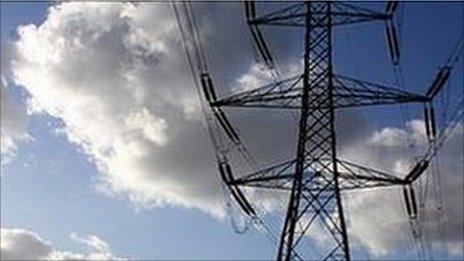Longannet power station in 'top 30 EU polluters'
- Published
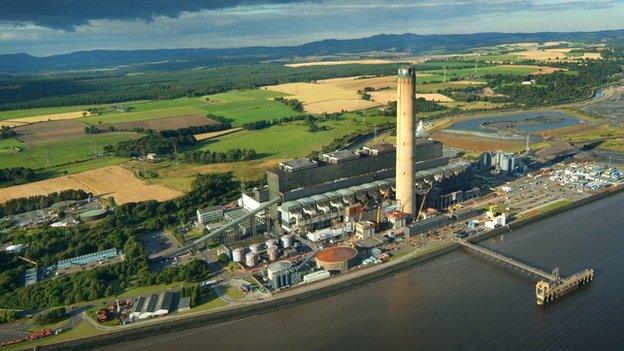
Scottish Power said substantial investment had been made to ensure Longannet operated within "strict" environmental legislative limits
Scotland's Longannet power station has been named as one of the top 30 polluting power plants in the EU.
Europe's Dirty 30 report is by WWF, CAN Europe, the European Envionmental Bureau, the Health and Environment Alliance and Climate Alliance Germany.
The report looks at CO2 emissions from coal power plants in the EU.
Scottish Power said "substantial investment" had been made to ensure Longannet operated within "strict" environmental legislative limits.
The report shows the top 30 polluting power plants in the EU, ranked according to their total carbon dioxide emissions in 2013.
The UK and Germany came joint first, with nine of the dirtiest coal plants each.
Scotland's Longannet is ranked 21st on the list, with Poland's Belchatow plant coming top and the UK's largest coal plant, Drax, coming in at 6th.
The nine UK power stations produced just under a third of the UK's electricity supply last year but were responsible for nearly two thirds of carbon emissions from the power sector.
The plants were mainly built in the 1960s and 70s and are therefore old with a low average efficiency of about 36%.
The EU's coal problem, the report suggests, is caused by the increased use of existing coal assets.
It said many of the EU's coal-fired plants were running at or near full capacity, due to the relatively low price of coal compared to gas.
This, it says, has led to an increase in CO2 emissions from coal power plants in the EU, despite the rapid expansion of renewables and an overall decrease in total EU greenhouse gas emissions.
According to the report, the heavy use of coal in some of the EU member states with the highest populations, such as the UK and Germany, puts the EU in "grave danger" of not phasing out emissions from coal quickly enough, undermining the EU's climate ambitions.
The report argues that the rapid phase-out of CO2 emissions from coal has to become a priority.
The UK's coal plants produce air pollution in the form of nitrogen dioxide, sulphur dioxide, particulates and mercury, which have significant negative impacts on human health and the environment.
Air pollution caused by UK coal power stations is estimated to be responsible for 1,600 deaths per annum in the UK.
'Substantial investment'
Gina Hanrahan, Climate and Energy Policy Officer at WWF Scotland, said: "Scotland has rightly set out to largely decarbonise its power sector by 2030 and is making significant strides towards this.
"Scottish renewable electricity generation is already displacing over 10m tonnes of carbon dioxide annually - as much as an entire coal plant - and we need to see this growth continue.
"Coal is by far the most polluting source of electricity."
A Scottish Power spokesman said: "Longannet continues to play an important role in providing electricity for millions of homes in Scotland whilst maintaining system security.
"Substantial investment has been made in recent years to ensure that Longannet operates within strict environmental legislative limits.
"Major projects have been carried out to help limit emissions, with over £200m being invested on projects to reduce sulphur dioxide and nitrous oxide emissions.
"As a flexible station, Longannet can also respond quickly to requests from National Grid and can reduce output when wind power generation is high."
- Published17 June 2014

- Published17 July 2013
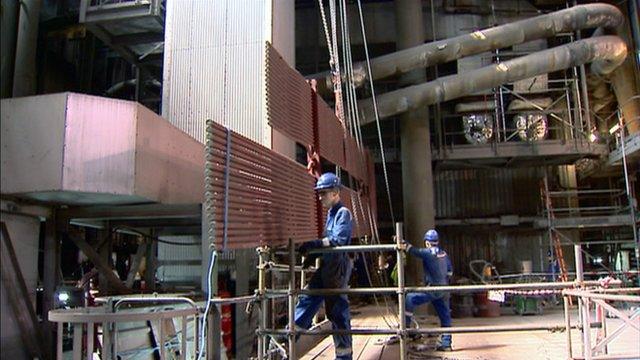
- Published30 May 2013
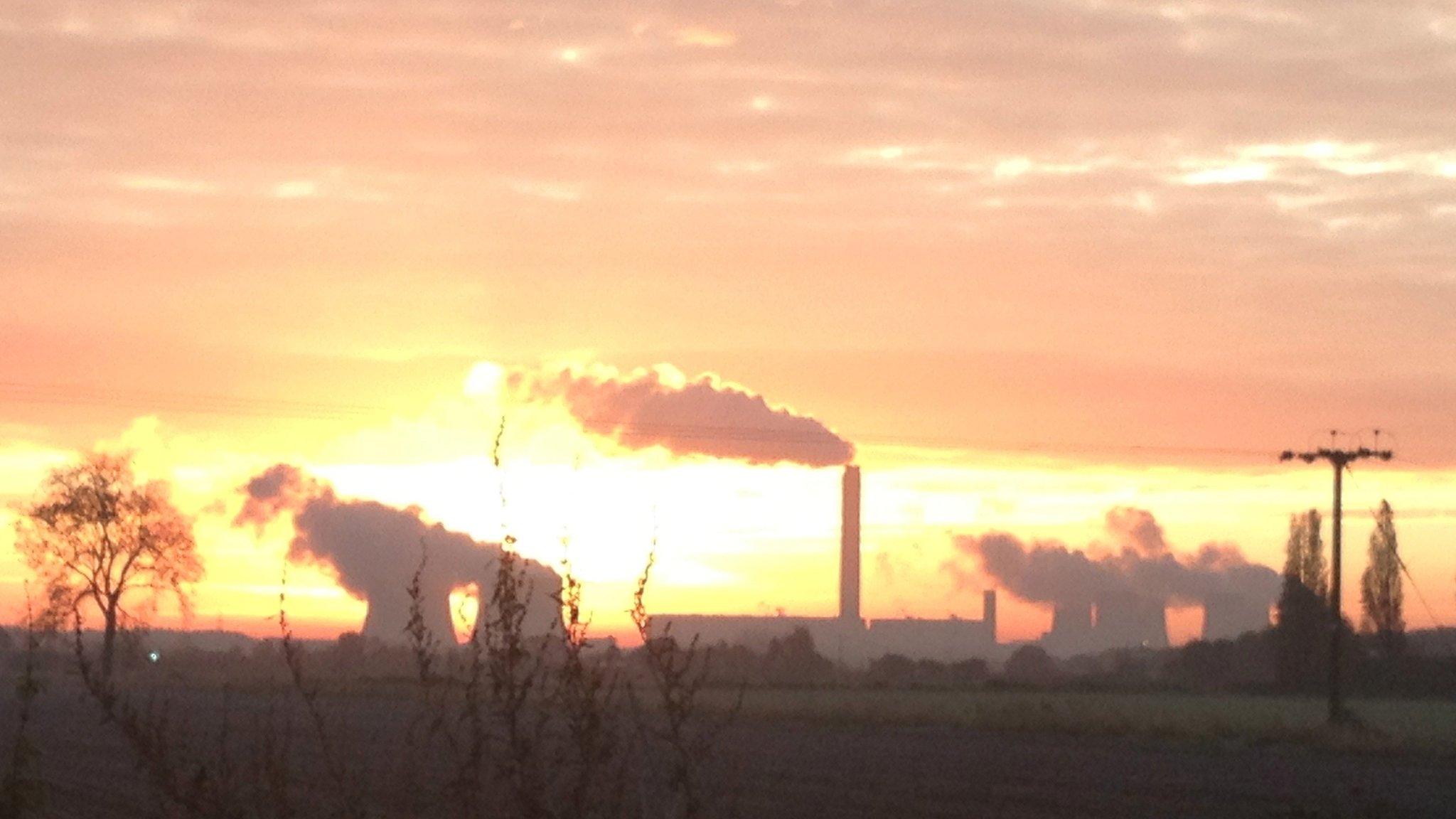
- Published17 April 2013
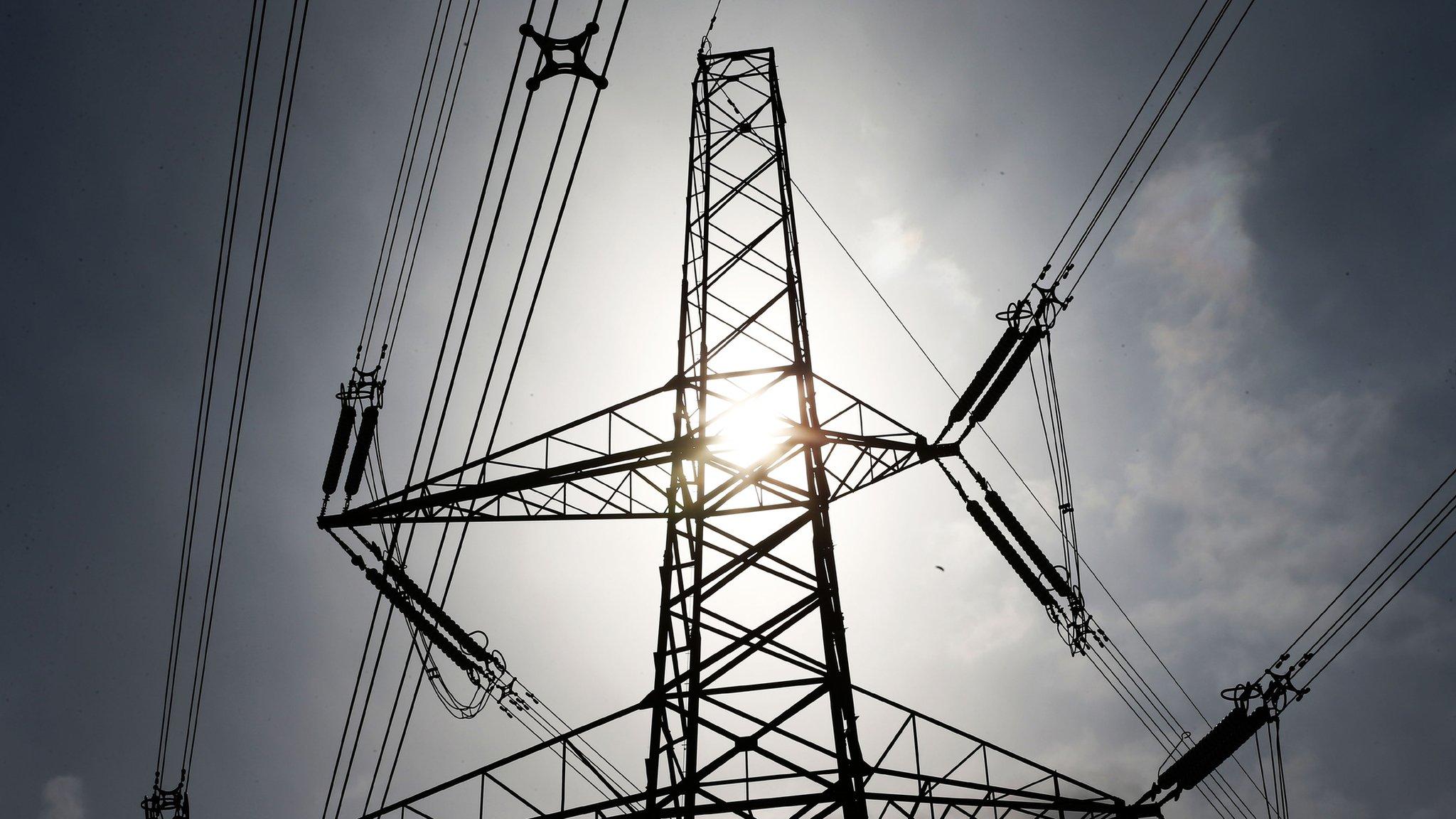
- Published14 February 2013
